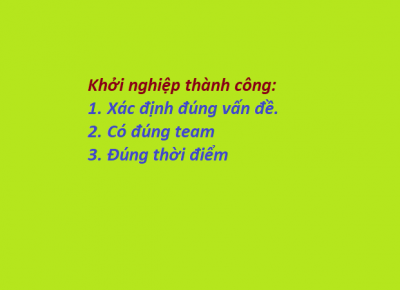Computer Science learning environment at Berkeley, MIT and Stanford
I attended MIT for undergrad and Berkeley for MS and PhD, all in Computer Science. Based on my experience as a student and from TA-ing 2 undergraduate courses at Berkeley, my observation is that MIT has a higher concentration of talent than Berkeley at the undergraduate level. The distribution at MIT is more top-heavy than at Berkeley. Top performers overlap between the two schools, however. The distribution makes it statistically easier to stand out at Berkeley than at MIT.
Culturally, MIT and Berkeley CS departments are quite similar. MIT has better undergraduate hackers. Undergraduates at MIT are much, much more involved in doing research -- even research that has real impact. I've mentored many undergraduate and masters students at Berkeley and most of their contributions have been marginal. The workload at both schools is quite high. However, I found that at Berkeley, professors are a bit more lenient with grading than at MIT.
At the graduate level it's the same across all three. Berkeley is particularly good at systems. MIT is really good at combining systems and theory. Stanford is similar to MIT.
My impression from working with Stanford researchers and giving talks down there is that it's just a whole other world from MIT/Berkeley. I picked Berkeley over Stanford, largely because of the cultural overlap between MIT and Berkeley. The environment at Stanford feels more formal and there's a strong emphasis on entrepreneurship. MIT was also quite entrepreneurial but less so than Stanford. Berkeley was the most "academically pure" amongst the three -- although statistics show that many successful startups are started from Berkeley alums, it's less integrated into the culture of the department.
Last, I still think MIT is the mecca for most technical fields. Although MIT, Stanford, and Berkeley CS are all equally top-notch, I would bet that most people with offers for faculty positions from the three would pick MIT.
Common Workload at MIT (according to Thom Lu on Quora)
Classes at MIT are assigned a "unit count," which is a rough estimate of the number of hours per week that the average student is expected to spend on the class. Most classes are given a 12-unit rating, and a normal semester consists of four classes, which equates to 48 hours a week spent on classes. Some classes are more or less challenging than others, and so the actual number of hours needed for any given class may differ (the chemical engineering department in particular is notorious for vastly low-balling their unit counts), and the number of hours a particular student spends is also dependent on their familiarity with related material. However, in most cases, a 48-unit semester will require a student to dedicate between 36 and 60 hours a week to academics.
The students who seem to be working 120 hours a week are usually either taking more than 4 classes (MIT has no limit on the number of classes that one is allowed to take in a single semester; I've personally gone up to 6 (do not recommend), and I believe the record for the most classes passed in one semester is 16), heavily involved in student clubs and organizations, or both.
More on workload at MIT (from Chris Lee on Quora)
Well, “regular” load is 48 MIT units a semester. To graduate in 4 years, you’ll need around this amount every semester. 48 MIT units will translate to 48+ (rarely a smidge lower, often a lot more) hours for an MIT student in terms of lectures, recitations, lab hours/lab work, papers, research, studying, psetting, going to review sessions, write-ups, prep work, etc., per week. Plan on closer to 50–60 hours per week, on average.
Most students will take more than 48 units. The freshman limits are 54 units and 57 units for Fall- and Spring- terms, respectively, to protect overachievers/superachievers from taking 96 units and getting only 2–3 hours of sleep a night (and killing themselves).
Spring break? You’ll still have assignments and papers and psets. Some students spend 40 hours in digital lab during Spring break.
There are some classes that are well-known time sinks, bottomless pits that will suck up all your free time. Students learn not to take more than one of these a semester. 6.111, 16.83 Space Systems Engineering, 2.007 (robotics contest), …
Problem sets are relentless. You don’t get breaks. You don’t want to fall behind. A long weekend means more time for [usually longer] assignments.
(There are some classes where I remember thinking this is 7 hours of working on the problem set for a C, 8 hours for a B, and 16 for an A. So students prioritize whether they want the grades or if there are other/better uses of their time. And a B or C at MIT is nothing to be ashamed of — MIT doesn’t hand out A’s to every student.)
MIT also tends to teach at an incredible pace: I usually tell applicants that MIT and Caltech teach a year of Single-variable Calculus (Calculus I and II) in a semester. MIT students get through their (general science/engineering/etc.) requirements that are normally the first two years — but in a single year. (It’s also like a bit more than six years of UBC compressed into four years since there is an undergraduate research-based thesis requirement for most majors.) That’s the “drinking from a firehose” thing. I liked the pace. Fellow students were definitely highly talented.
MIT tends to be very self-selective about applicants: applicants tend to love challenges. MIT allows for a lot of fine-tuning of first-year classes (like 8.012 “Classical Physics for Masochists” instead of 8.01), mentioned in this blog: What Though the Odds | MIT Admissions Students can accelerate or challenge themselves or take the class in a different format (Experimental Study Group, Concourse). Took AP Calculus AB? Students can take 18.01A+18.02A, roughly 20 weeks to cover all of Single-variable and Multi-variable Calculus.
That being said, MIT students will love the above and go above and beyond academically. They will pursue topics and subjects that fascinate them. They’ll do the most challenging problems just to take them on. Or they like to overlearn. They’ll take more challenging variants of classes for fun. And they’ll also participate in their sports and clubs and extracurriculars, and thrive.









